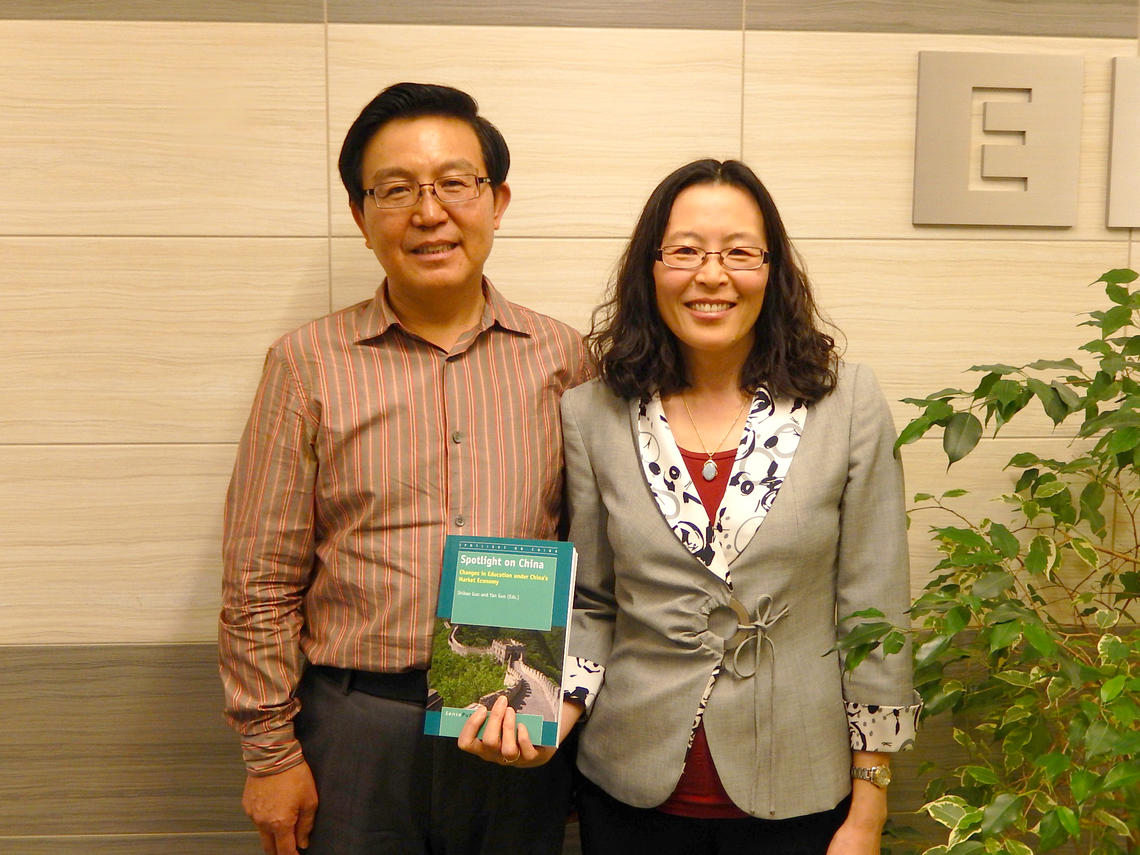
Yan Guo and Shibao Guo have edited a book that looks at five aspects of educational reform in China
Aug. 3, 2016

Yan Guo and Shibao Guo have edited a book that looks at five aspects of educational reform in China
China’s in the news a lot, most often because of the drastic changes that have taken place over the last few decades. As the country of 1.4 billion people continues to shift from a central economy based on communism to a more socialist, market economy, China is experiencing unprecedented growth in many areas.
One of the sectors affected by these changes is post-secondary education, where there has been a dramatic jump in the number of students entering the country’s more than 2200 colleges and universities. The number of students completing programs in higher education is massive: while in the past, approximately three to five per cent of the population was able to access a post-secondary institution, that number has now jumped to 30%--nearly seven million people a year.
What sort of prospects do all of these graduates have for employment related to their education? What changes have come to how and what students learn? Has the structure of the university itself changed? And what about the balance between the urban and rural, upper and lower class, the working and the unemployed, or the underemployed?
These are the questions Yan Guo and Shibao Guo put to 20 writers from around the world as they edited a new book entitled Spotlight on China: Changes in Education under China’s Market Economy.
The professors in the Werklund School of Education focused their study on five areas of post-secondary education: the new market economy and curriculum reform; teaching under China's new economy; changes in higher education; transitions from education to work; and the new economy and social equality/inequality.
In this Quick Chat, the Guos discuss the book and the fact that while some of the changes to education in China may not be positive, they may serve as valuable lessons for others.
Audio: